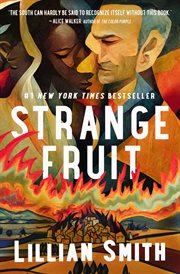Elegy for Mary Turner An illustrated account of a lynching
Book - 2021
Powerful and haunting, this depiction, detailed with full-color artwork, names those who were lynched and tortured in late May 1918 in Valdosta, Georgia, including one black woman, Mary Turner, who was eight months pregnant at the time.
- Subjects
- Genres
- True crime stories
- Published
-
London :
Verso
2021.
- Language
- English
- Main Author
- Other Authors
- ,
- Physical Description
- xi, 57 pages : illustrations ; 24 cm
- Bibliography
- Includes bibliographical references (page vi).
- ISBN
- 9781788739047
- Introduction: Say Her Name-1918, 1949, 2021-Mary Turner and the "Wife of the victim" / Mariame Kaba - Elegy for Mary Turner: An illustrated account of a lynching - Afterword: Hidden Memories / Julie Buckner Armstrong - Postscript: A place to lay their heads / C. Tyrone Forehand (great-grandnephew of Hayes and Mary Turner).


